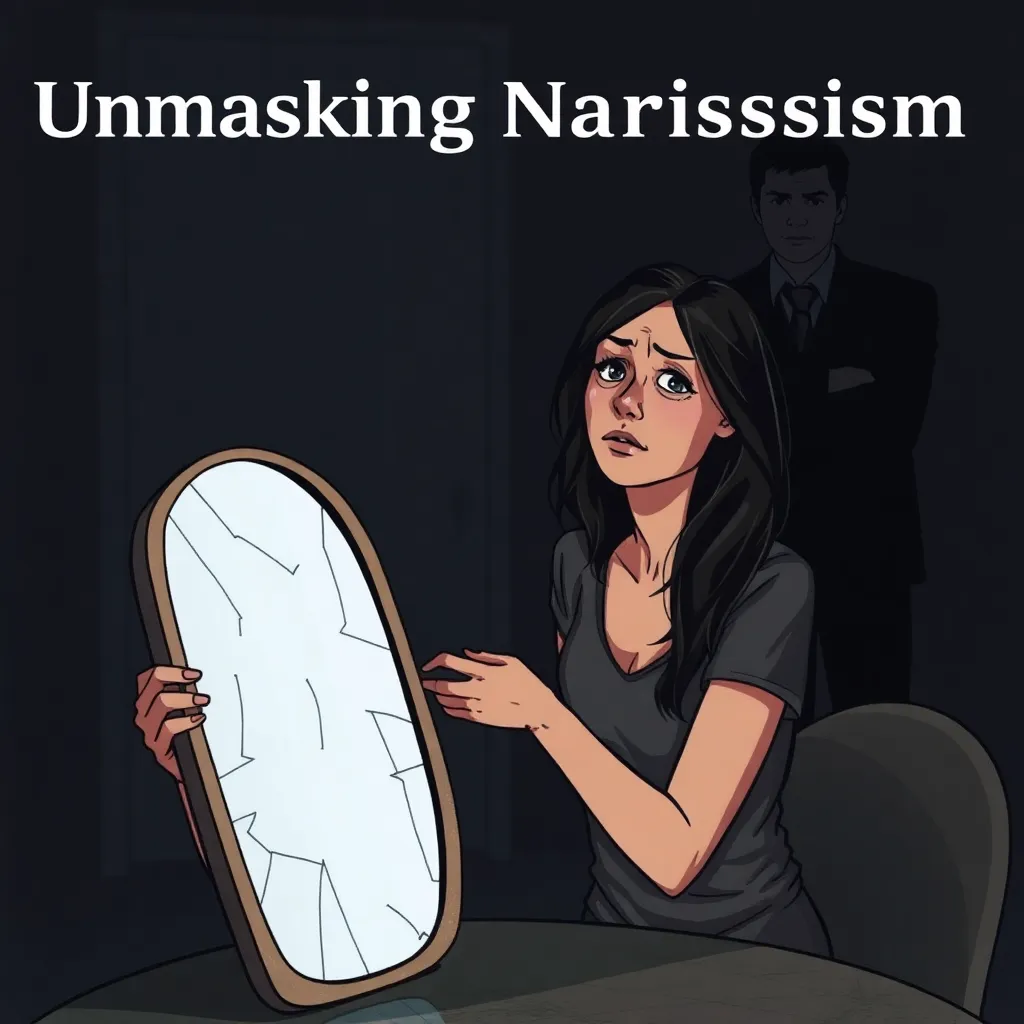Navigating a relationship with a narcissist can feel like walking through a maze where the walls constantly shift and the exit seems just out of reach. You may find yourself questioning your own perceptions, emotions, and worth, wondering how something seemingly small spiraled into a situation that leaves you doubting your own value. Understanding the lies narcissists tell is crucial because these falsehoods are often designed to undermine your confidence and reshape your sense of reality. By exploring these manipulative tactics, you can begin to reclaim your power and rebuild the trust in yourself that has been eroded over time.
In this article, we will delve into six common lies that narcissists use to destabilize your self-esteem and control the narrative within the relationship. Each lie, while seemingly innocuous at first glance, is a calculated move to keep you in a cycle of self-doubt and dependency. As we uncover these deceptive patterns, you will gain insights into their psychological impact and learn strategies to protect your mental and emotional well-being. Our goal is to equip you with the knowledge to identify these lies and the strength to stand firm in your truth.
Empowering yourself with this understanding is not just about recognizing the lies but also about fostering resilience and self-assurance. You deserve to feel confident and valued, free from the manipulative games that have clouded your judgment. Through this journey, you will discover practical steps to restore your sense of self and build healthier boundaries, allowing you to move forward with clarity and confidence. As you read on, remember that you are not alone, and reclaiming your confidence is a courageous and empowering step towards a more authentic life.
1. You’re Overreacting: Dismissing Feelings

The phrase “You’re overreacting” is a common tactic narcissists use to diminish your feelings and make you question your own reality. It often leaves you feeling invalidated and unheard, eroding your self-confidence over time.
Imagine sharing your concerns about a partner’s behavior, only to have them wave it off as an overreaction. This dismissal can lead you to doubt your perceptions and even feel guilty for expressing genuine emotions.
In healthy relationships, feelings are acknowledged and valued, not disregarded. It’s essential to recognize when your emotions are being minimized and to assert your right to have and express them.
Expert relationship therapists emphasize the importance of setting boundaries when your feelings are dismissed. By doing so, you can protect your emotional well-being and maintain a sense of self-worth.
2. I’m the Best You’ll Find

Another common lie narcissists tell is, “I’m the best you’ll find.” This phrase is designed to make you feel dependent on them, planting seeds of doubt about your own worth and ability to find happiness elsewhere.
Consider a situation where a partner constantly reminds you of their supposed superiority in every aspect of life—from their career achievements to their social prowess. Such comparisons can make you feel inferior and hesitant to seek out other potential partners who might treat you with more respect and kindness.
Experts have noted that narcissists often use this tactic to keep their partners feeling trapped in the relationship. By convincing you that they are the best you’ll ever have, they aim to undermine your self-esteem and make you question your own judgment.
To counteract this manipulation, remind yourself of your unique qualities and what you bring to a relationship.
Ultimately, the belief that you deserve someone who appreciates and values you is crucial. Recognizing and challenging these manipulative narratives can empower you to seek healthier relationships that truly honor your worth.
3. Your Memory’s Failing You

Narcissists often resort to questioning your perception with the phrase, “Your memory’s failing you.” This tactic is known as gaslighting, and it can make you doubt your own recollections and experiences. Imagine a scenario where you clearly remember a conversation, but your partner insists it never happened, leaving you feeling confused and questioning your sanity. This is a subtle yet effective method to erode your self-esteem and confidence.
In such situations, it’s crucial to trust your own mind and instincts. Keeping a journal of events, conversations, and feelings can serve as a reality check when doubts creep in. If your partner frequently dismisses your memories, it might be an indication of them trying to manipulate your perception. Acknowledging this pattern is the first step toward regaining your confidence.
According to relationship experts, this behavior is not just about memory—it’s about maintaining control. When someone questions your memory, it’s often an attempt to shift the power dynamic in their favor. In a healthy relationship, both partners should feel validated and respected, even when they disagree. It’s vital to recognize when your partner’s words are meant to undermine rather than support you.
Ultimately, understanding that gaslighting is a form of emotional manipulation is empowering. Trusting yourself and your memories allows you to break free from this cycle of doubt. The ability to stand by your truth is a powerful tool in rebuilding your self-assurance and fostering healthier relationships.
4. Everyone Agrees with Me

A *narcissist* often employs the phrase “Everyone *agrees* with me” to make you feel *isolated* in your opinions. This tactic can make you question your *judgment* and feel like you’re the odd one out in your own relationship.
In many *relationships*, this lie is used to *manipulate* and control the narrative, making you feel like the *outsider*. When a partner claims universal *agreement*, it can undermine your confidence and make you feel *unsupported*.
Picture a time when you *disagreed* with your partner about a decision, and they insisted that everyone they knew thought the same way they did. This can be a form of *gaslighting*, making you feel like your *perspective* is invalid or irrelevant.
Experts suggest that reinforcing your own *beliefs* by documenting your thoughts and feelings can be an effective way to combat this lie. By *validating* your own experiences, you maintain your *self-esteem* and resist being swayed by manipulative arguments.
5. I’m Always the Victim

In many relationships with a narcissist, you might frequently hear the phrase, “I’m always the victim.” This is a tactic used to deflect any responsibility and shift the focus back onto them, making you question your own experiences and feelings.
Imagine being in a situation where every disagreement is turned into a dramatic narrative about how they’ve been wronged. This constant portrayal of themselves as the victim can leave you feeling confused and guilty, as if you are somehow always at fault.
Experts suggest that this behavior stems from an inability to confront their own flaws, which are instead externalized onto others. By perpetually casting themselves as the victim, they avoid facing any criticism, which can lead to an unhealthy cycle of blame and manipulation.
It’s crucial to recognize this pattern and not internalize their skewed narrative. Remember, being mindful of their tactics can empower you to protect your self-esteem and maintain your emotional well-being.
6. You’re Too Sensitive for This

Narcissists often dismiss your feelings by claiming “You’re too sensitive for this.” This tactic is designed to make you question your emotional responses and lead you to believe that your feelings are inherently flawed. In a relationship where this phrase is frequently used, you might find yourself walking on eggshells, constantly doubting your own perceptions. It’s a subtle but powerful way to undermine your confidence and shift the focus away from their inappropriate behavior.
Imagine expressing concern about a hurtful comment only to be met with an eye-roll and a dismissive “You’re overreacting.” Over time, this can condition you to suppress your emotions and invalidate your own needs in the relationship. To counter this damaging narrative, remind yourself that your feelings are valid and deserve to be acknowledged. Self-awareness is crucial; recognizing this manipulation is the first step towards protecting your emotional well-being.
Experts suggest practicing self-validation by keeping a journal where you can freely express your thoughts without judgment. This can help you separate your authentic feelings from the distorted reality that a narcissist tries to impose on you. In a healthier relationship, both partners respect each other’s emotions and work together to create a more supportive environment. If your partner consistently dismisses your feelings, it might be time to reevaluate the relationship dynamics.
It’s crucial to protect your sense of self by surrounding yourself with people who truly value and respect you. Remember, a truly loving relationship nurtures your confidence and celebrates your individuality. By setting boundaries and prioritizing your emotional health, you can reclaim your confidence and create a more fulfilling connection. The key takeaway here is to trust your instincts and know that your feelings are not only valid but also an essential part of who you are.
Conclusion: Creating Beautiful Outdoor Spaces
As we navigate the intricate dynamics of relationships, it’s crucial to recognize the subtle yet destructive lies narcissists often weave: dismissing your feelings, projecting their flaws onto you, gaslighting your reality, making false promises, belittling your achievements, and isolating you from support networks. Each of these tactics chips away at your confidence, but understanding them is the first step towards reclaiming your power.
Today, take a moment to reflect on any patterns you’ve noticed in your relationships. Identify one small boundary you can set to protect your emotional well-being, whether it’s expressing your feelings openly or seeking support from trusted friends. This first step is pivotal in rebuilding your confidence and nurturing healthier connections.
Remember, the journey to thriving relationships is continuous. Bookmark this article to return to these insights whenever you need a reminder of your strength and clarity.
Looking ahead, know that relationship success is within reach. By staying informed and proactive, you’re not only safeguarding your emotional health but also paving the way for genuine, supportive relationships. Empower yourself with knowledge—every step forward is a testament to your resilience and commitment to love that uplifts.
